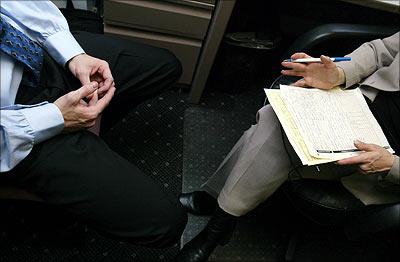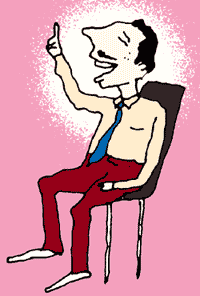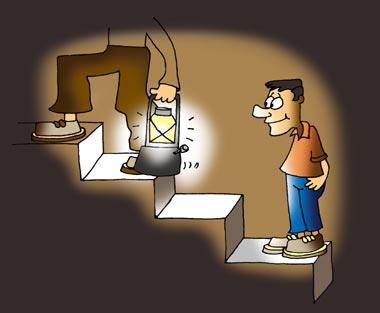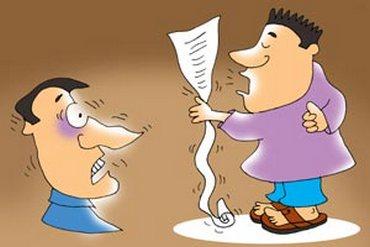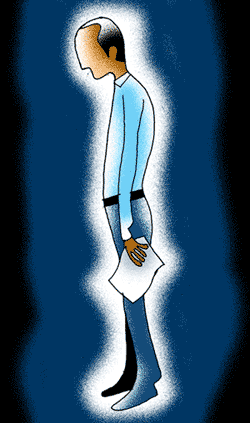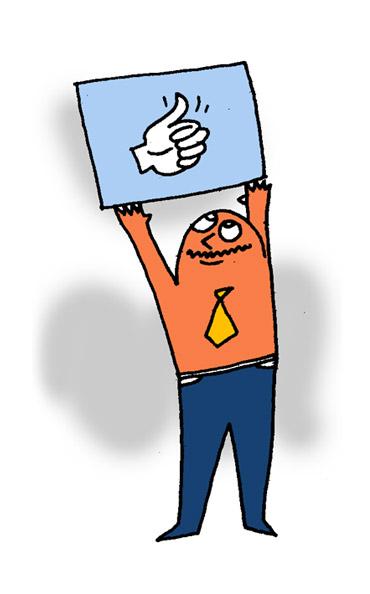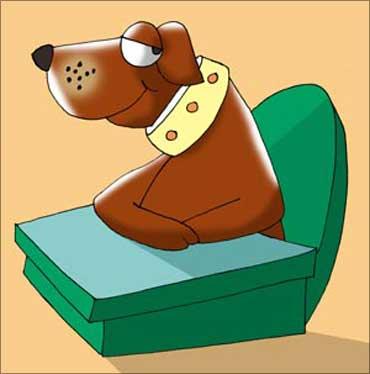 | « Back to article | Print this article |
Top 10 job interview myths
Think your prospective employer knows it all? Here's why you could be wrong!
While we were in college, we read a bunch of books about how to prepare for a job interview, and one thing they all said was that interviewers would be well prepared and will ask probing, detailed questions.
But instead, we find that, only a few interviewers seem to have few questions beyond "Tell me about yourself" and "Where do you see yourself in 5 years?".
In reality, many interviewers are managers who are so pressed for time that they just haven't gotten around to think about you at all until you're sitting across the desk from them.
So, if you think you know all there is to know about interviewing for a job, you might need a reality check?
Here is a list of the top 10 job interview myths, and how to deal with them
Courtesy
Please click NEXT to continue reading...
Myth 1 : Interviewer is prepared
Contrary to what you may expect, when you sit down for the interview, your interviewer probably hasn't had time to do more than glance through your resume.
This is when the frequent catch all question, "Tell me about yourself" is asked.
Use this as an opportunity to recap the highlights of your resume, your qualifications and why you're a good fit for the job.
Illustration: Dominic Xavier
Myth 2 : Interviewers are trained to conduct thorough interviews
Typically, HR professionals get extensive training in job interviewing techniques -- but the average manager is more or less winging it.
So if your interviewer asks vague questions, go into specifics even if they haven't asked for.
Also be ready with several concrete examples of your skills and experiences that illustrate why you should be hired for the job.
Illustration: Dominic Xavier
Myth 3 : It's polite to accept an interviewer's offer of refreshment
To be courteous, many interviewers will offer you a drink -- but in reality, it is often a bother for them to rustle up a cup of coffee or tea.
And even worse, this can use up a good portion of the allotted interview time.
So unless the beverage is right there, politely decline.
Illustration: Uttam Ghosh
Myth 4 : Give references' contact information right away
Until specifically asked, hold off with providing references.
By waiting until after the interview, you'll have a better idea of who would make the most suitable references for position.
If asked for references, offer to send the information via e-mail the next day or so.
Illustration: Dominic Xavier
Myth 5 : There's a right answer to every question
Often interviewers ask a question to see the way you think and how you approach your answer.
This is more important than the answer itself.
Explaining them how you would reach to a solution of a given problem will be helpful than the right answer.
Illustration: Uttam Ghosh
Myth 6 : You should always keep your answers short
Don't be afraid to speak at some length to convince your interviewer why you are the right hire.
Talk-up your qualifications and strengths as it relates specifically to what you have learned about the position.
Illustration: Uttam Ghosh
Myth 7. If you don't hear straight away, you haven't got the job
Some interviewers will take a while to get back to you depending on the amount of people they have had apply and the urgency of the role.
If you haven't heard anything for a few weeks don't despair -- this doesn't always mean you haven't got the job.
Illustration: Dominic Xavier
Myth 8 : You should show tremendous ambition
It's a common question, but it's also a tricky one.
While interviewers want you to be highly motivated, they also worry that you'll get restless if you don't move up fast enough.
So say something that covers all bases, like, 'I'd be happy to stay in this job as long as I'm still learning things and making a valuable contribution'.
Illustration: Dominic Xavier
Myth 9 : Interview Invite does not mean the job is still open
Unfortunately this is not always the case.
At times, companies see 'interviews' as an opportunity to do market research: They may ask about your current or recent duties, pay scale etc. for comparison purposes.
But attending the interview is still worth it. Sometimes they discover you're a good fit for a different opening that really does exist.
You never know where an interview might lead!
Illustration: Dominic Xavier
Myth 10 : Most qualified person gets the job
A candidate who is less qualified, but has the right personality and hits it off with the interviewer almost always gets hired over a candidate with better qualifications on paper.
If you suspect you haven't won over the interviewer, try to fit in a question such as "What would your ideal candidate for this job be like?"
And then talk about how you fit that profile.
Illustration: Uttam Ghosh
